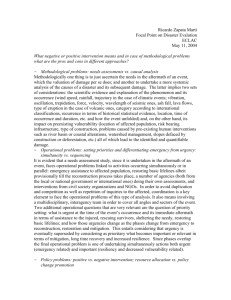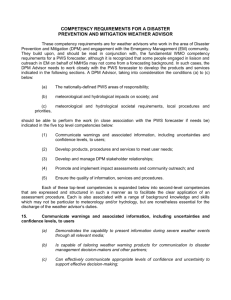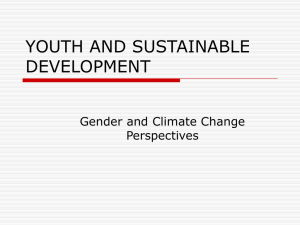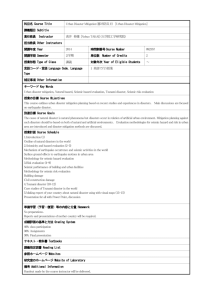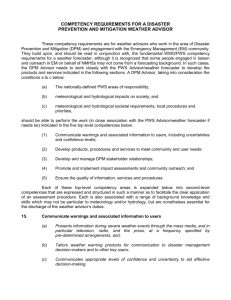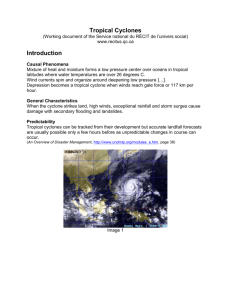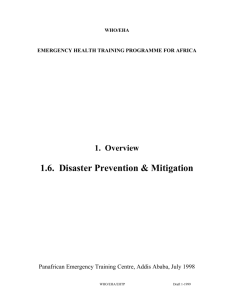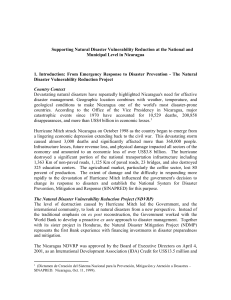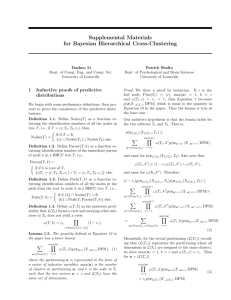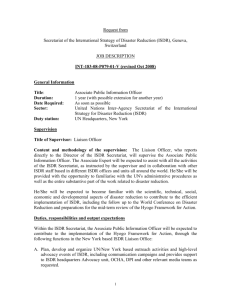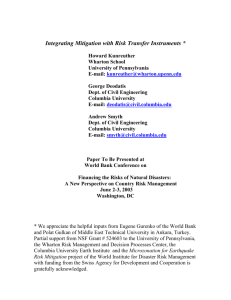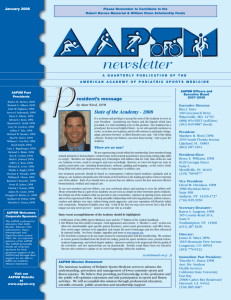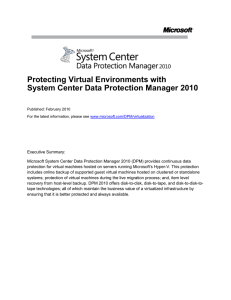Natural Disaster Prevention and Mitigation Programme
advertisement
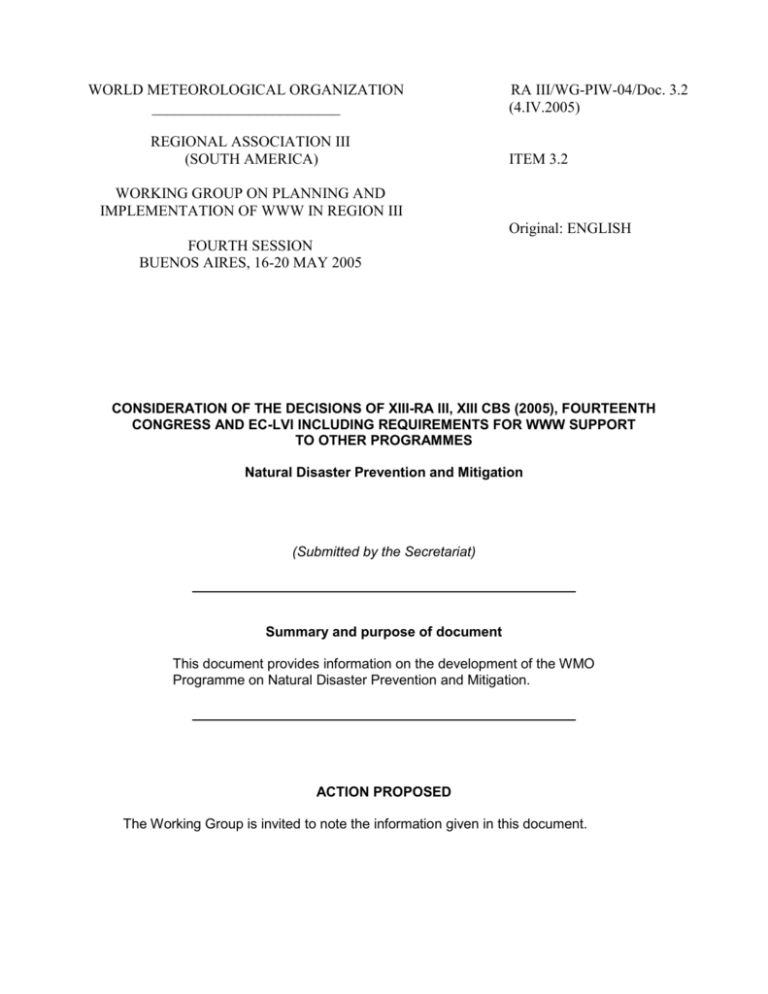
WORLD METEOROLOGICAL ORGANIZATION _________________________ REGIONAL ASSOCIATION III (SOUTH AMERICA) RA III/WG-PIW-04/Doc. 3.2 (4.IV.2005) ITEM 3.2 WORKING GROUP ON PLANNING AND IMPLEMENTATION OF WWW IN REGION III Original: ENGLISH FOURTH SESSION BUENOS AIRES, 16-20 MAY 2005 CONSIDERATION OF THE DECISIONS OF XIII-RA III, XIII CBS (2005), FOURTEENTH CONGRESS AND EC-LVI INCLUDING REQUIREMENTS FOR WWW SUPPORT TO OTHER PROGRAMMES Natural Disaster Prevention and Mitigation (Submitted by the Secretariat) Summary and purpose of document This document provides information on the development of the WMO Programme on Natural Disaster Prevention and Mitigation. ACTION PROPOSED The Working Group is invited to note the information given in this document. Natural Disaster Prevention and Mitigation Programme 1. Through Resolution 29 (Cg-XIV) Congress decided to initiate a major programme on Natural Disaster Prevention and Mitigation (DPM) and Resolution 5 (EC-LVI) established an Executive Council Advisory Group on Natural Disaster Prevention and Mitigation. 2. The WWW Programme, together with AMP, WCP, HWRP and AREP contribute to global capabilities in the detection, forecasting and early warning of hazards, and providing effective means and procedures to minimize their adverse consequences. The WWW Programme has been promoting upgrades to infrastructures to generate and exchange observations, forecasts and warnings. Through its system of RSMCs, the WWW has been providing weather forecasts, early warnings and advisories on tropical cyclones and other severe events. As a part of WWW, the TCP has been coordinating activities with respect to tropical cyclones, associated floods and storm surges. On-going key activities pertinent to DPM include developments in adaptable observing networks and programmes at regional level with reference to disaster-prone regions and seasons, in high-impact weather forecasting based on NWP output, and in communication solutions for access to and dissemination of early warnings and related information. 3. The PWS Programme, as part of the AMP Programme, has been providing assistance to NMHSs through training activities and the publication of guidelines on media issues, on the use of Internet, and on the communication of adequate warning messages to both the public and the emergency management community. 4. The thirteenth session of CBS (St. Petersburg, 2005) noted that the DPM would pose new challenges for CBS and have direct implications on its work, specifically as regards those activities and related priorities that contribute directly to DPM programme goals and expected outcomes. It emphasized the need for observational data and forecasts exchanged among neighbouring countries that support effective early warnings, for example, and as well the need for education and training opportunities that would assist Members to make progress on prevention and mitigation measures. 5. CBS gave consideration to the DPM Implementation Plan with a view to identifying the various contributions and inputs the Commission should develop in the period 2005-2006, in coordination with the Secretariat of the International Strategy of Disaster Reduction (ISDR) on ISDR activities at the global and the regional levels, to enhance collaboration and avoid duplication of effort.
